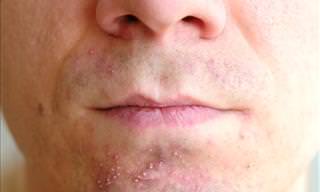What Are Sulfates?
Sulfates are a group of synthetic, vegetable or petroleum-based compounds that are added to many cosmetics as cleansing agents. Products like shampoo, hair dyes, bath bombs facial cleansers, body wash, hand soap, and even toothpaste contain sulfates.
Apart from being used in cosmetics, sulfates are also a common ingredient in dish soap and other cleaners. Over 60% of all toothpastes and over 70% of body wash, soaps, and shampoos contain these detergents, making sulfates the most popular detergent used in personal care products, so the average consumer is very likely to be exposed to these compounds on a regular basis.
In fact, if you were to pick up your hand soap, toothpaste or shampoo right now and look at its ingredient list, you’d very likely find some kind of sulfate in it. The most popular sulfates include sodium lauryl sulfate (SLS), ammonium lauryl sulfate (ALS), and sodium laureth sulfate (SLES), though others exist as well.
What these products do in all of these personal care items and cleaners is simple: when they come in contact with water, they foam up, and the resultant foam helps clean and dissolve all the dirt and oil that built up on the skin, hair or teeth throughout the day. Detergents are necessary in any products that are supposed to clean your body, and sulfates are the most effective and among the cheapest known agents that can do so.
Why Do Sulfates Have a Bad Reputation?
Several claims regarding the safety of sulfates for human health and the environment have been made, some of which are true, while others have been proven to be false.
By far the main known problem of sulfates in personal care formulations is linked to their effectiveness. As we mentioned above, sulfates are by far the most powerful detergents used in personal care products, so powerful, in fact, that people with compromised or sensitive skin, hair, and mouths often experience irritation, dryness and worsening of certain symptoms when they’re using sulfates.
For one, sulfates have been known to worsen or cause mouth sores, promote skin dryness and eczema flareups, as well as cause a dry and itchy scalp or brittle, dry hair. This is mainly because sulfates are so effective at degreasing the hair and skin that they are essentially stripping the surface of its natural moisture and drying it out.
Apart from causing dryness, sulfates are also known to irritate the skin for many people, particularly the more delicate skin of the face. While most people who are not suffering from dry skin conditions, such as eczema or psoriasis, can tolerate sulfates on the body, many people find that using face washes that contain sulfates causes redness and can even cause acne.
Pimples around the perimeter of the hairline or perioral dermatitis (sores and pimples around the mouth) are also a common side effect of using shampoos and toothpastes containing sulfates.
There has also been much speculation regarding the carcinogenicity and adverse environmental effects of sulfates, and as a result, studies have been conducted to research the possible issue. The studies suggest that sulfates have no observed carcinogenic or toxic effect on humans, they're completely biodegradable and don’t pose a danger to aquatic life and the environment.
Who Should Avoid Sulfates?
While sulfates are considered safe for use in products, which is why they keep showing up in personal care products and weren't banned from use in cosmetics to begin with, they may not be the best choice for certain people, as they can irritate and sensitize the hair, skin, eye area and mouth.
The following people would probably benefit from avoiding sulfates in personal care products:
- People with skin or scalp conditions may experience the exacerbation of their symptoms after using body care, hair care or skin care products containing sulfates. Sulfates may dry out the skin and scalp even further, causing redness, itching, flaking and cracking of the skin. The only exceptions are people with extremely oily scalps and dandruff, who may actually benefit from sulfate shampoos.
Related Article: 9 Everyday Habits that Cause Hair Thinning and Hair Loss
- People with sensitive skin, too, should be careful with products containing sulfates, as they are more prone to developing dermatitis, redness, and acne from products containing sulfates.
- People with dry or damaged hair typically don’t like sulfate-containing shampoos because they further dry out their hair, promoting other issues, such as frizz or split ends. This includes people who have dyed their hair multiple times or those who heat style their hair constantly.
Even if you choose to use sulfates, make sure to always rinse out the shampoo or any other product containing the sulfate thoroughly, as not doing so may cause irritation.
The Bottom Line
Sulfates are surfactant detergents used in most personal care items, as well as some dish detergents and other cleaning products. The concentration of sulfates in personal care products varies between 1% in facial washes to 20% and more in certain shampoos.
Although sulfates are safe to use overall and are not a threat to human health, they may be too harsh to use for people with sensitive or dry skin or scalp and can exacerbate certain skin and scalp conditions. Sulfate-free alternatives are widely available, and people who experience the drying or sensitizing effects of these cleansing agents can opt for those.
 Go to BabaMail
Go to BabaMail




























